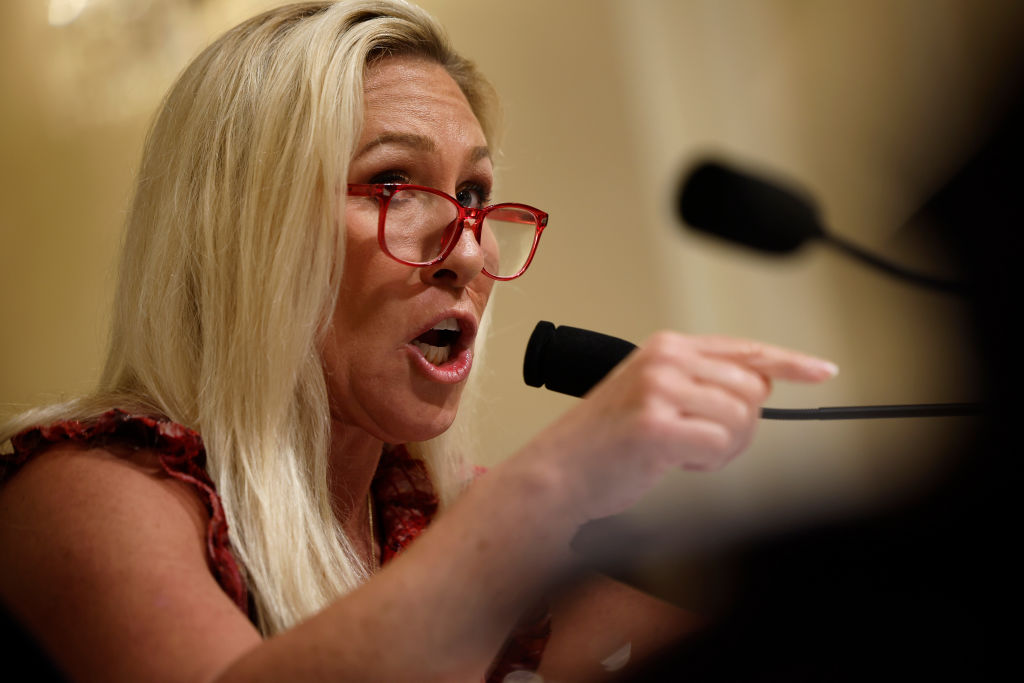WASHINGTON — President Barack Obama urged Senate Democrats to overcome the last, lingering disputes blocking agreement on a national health care overhaul Tuesday, declaring they were “on the precipice” of enacting historic legislation that has eluded administrations and lawmakers for decades.
In comments after a private meeting, the president said differences still remain over details, but he spoke in highly favorable terms about the measure that party leaders hope to pass by Christmas.
The bill includes “all the criteria that I laid out” in a speech to a joint session of Congress earlier in the year, he said. “It is deficit-neutral. It bends the cost curve. It covers 30 million Americans who don’t have health insurance, and it has extraordinary insurance reforms in there to make sure that we’re preventing abuse.”
The meeting followed an intense two days in which Democrats struggled — apparently successfully — to keep the legislation moving forward despite a flare-up over a proposal to expand Medicare to uninsured men and women as young as 55.
RELATED: Obama Visits Senate To Push Health Care Bill
Sen. Joe Lieberman, I-Conn., announced on Sunday he opposed the proposal, and he threatened to join Republicans in voting against the overall measure if it stayed in the bill. Democrats are ready to jettison the Medicare change, and Lieberman told reporters that assuming they do — and that any government plan or Medicare expansion stays out of the bill — “then I’m going to be in a position where I can say what I’ve wanted to say all along: that I’m ready to vote for health care reform.”
That left Sen. Ben Nelson, D-Neb., the only known potential holdout among the 60 senators who are members of the party’s caucus, a group that includes 58 Democrats, Lieberman, and Sen. Bernie Sanders, I-Vt.
Nelson has been seeking changes to increase restrictions on abortion coverage in a new insurance marketplace the bill would establish.
Democrats need 60 votes to overcome a threatened Republican filibuster.
The White House meeting unfolded as Democrats awaited a final cost analysis from the Congressional Budget Office on the latest version of the bill, and the full Senate pointed toward a vote on an amendment to permit the importation of prescription drugs from Canada and elsewhere.
At its core, the legislation is designed to spread coverage to 30 million Americans who now lack it, impose new consumer-friendly regulations on the insurance industry and slow the rate of growth in health care spending nationally. Most Americans would be required to purchase insurance, and the government would establish a new series of “exchanges” through which consumers could shop for policies.
RELATED: Senate Democrats Tentatively Agree To Sideline Public Option
The measure includes hundreds of billions of dollars in subsidies to defray the cost of insurance for families with incomes up to about $88,200 a year for a family of four. Additional assistance would go to small businesses to help them afford coverage for their workers.
Large firms would not face a requirement to cover their employees. But the government would impose charges on them if any of them did not do so and any of their workers qualified for federal subsidies to help them afford private coverage.
Democratic leaders mapped out a timetable that envisioned passage before Christmas — but just barely.
That assumed that Nelson and Lieberman would join 58 others in swinging behind the bill once the CBO cost estimates become available.
The House approved its version of the bill earlier this fall, and final negotiations between the two houses would follow a vote in the Senate.
In his remarks, Obama took issue with ads and claims by critics about the bill’s impact on the federal budget, citing earlier CBO estimates that predicted it would reduce the deficit. “So all the scare tactics out there, all the ads that are out there are simply inaccurate,” he said.
“There are still disagreements that have to be ironed out. There is still work to be done in the next few days,” he said, without going into specifics.
But in a clear signal of his commitment to the bill, he said, “I told my former colleagues today … that we simply cannot allow differences over individual elements of this plan to prevent us from meeting our responsibility to solve a longstanding and urgent problem for the American people.”
Unless they act, he said, costs will continue to rise, employers will drop coverage and “Medicare and Medicaid will blow a hole through out budget.
“Those things are guaranteed. That’s the status quo. That is the trajectory we are currently on,” he said.
The legislation would be financed by about $460 billion in cuts in projected Medicare payments to health care providers over a decade. It also includes higher payroll taxes on individuals making more than $250,000 annually and higher taxes on high-cost insurance policies, drug makers, makers of medical device makers and others.
















